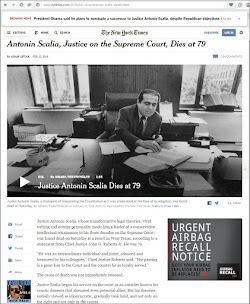 Robert Reich – Foreign Cash Is Hijacking American Democracy
Robert Reich – Foreign Cash Is Hijacking American Democracy
By Robert Reich, Alternet.org
(August 8, 2016 4:00 p.m.) — The biggest threats to American sovereignty are invisible digital dollars wired into U.S. election campaigns from abroad.
“Without a border, we just don’t have a country,” Donald Trump says repeatedly. For him, the biggest threats to American sovereignty are three-dimensional items that cross our borders, such as unwanted imports and undocumented immigrants.
He’s wrong. The biggest threats to American sovereignty are invisible digital dollars wired into U.S. election campaigns from abroad.
(Read more.)





